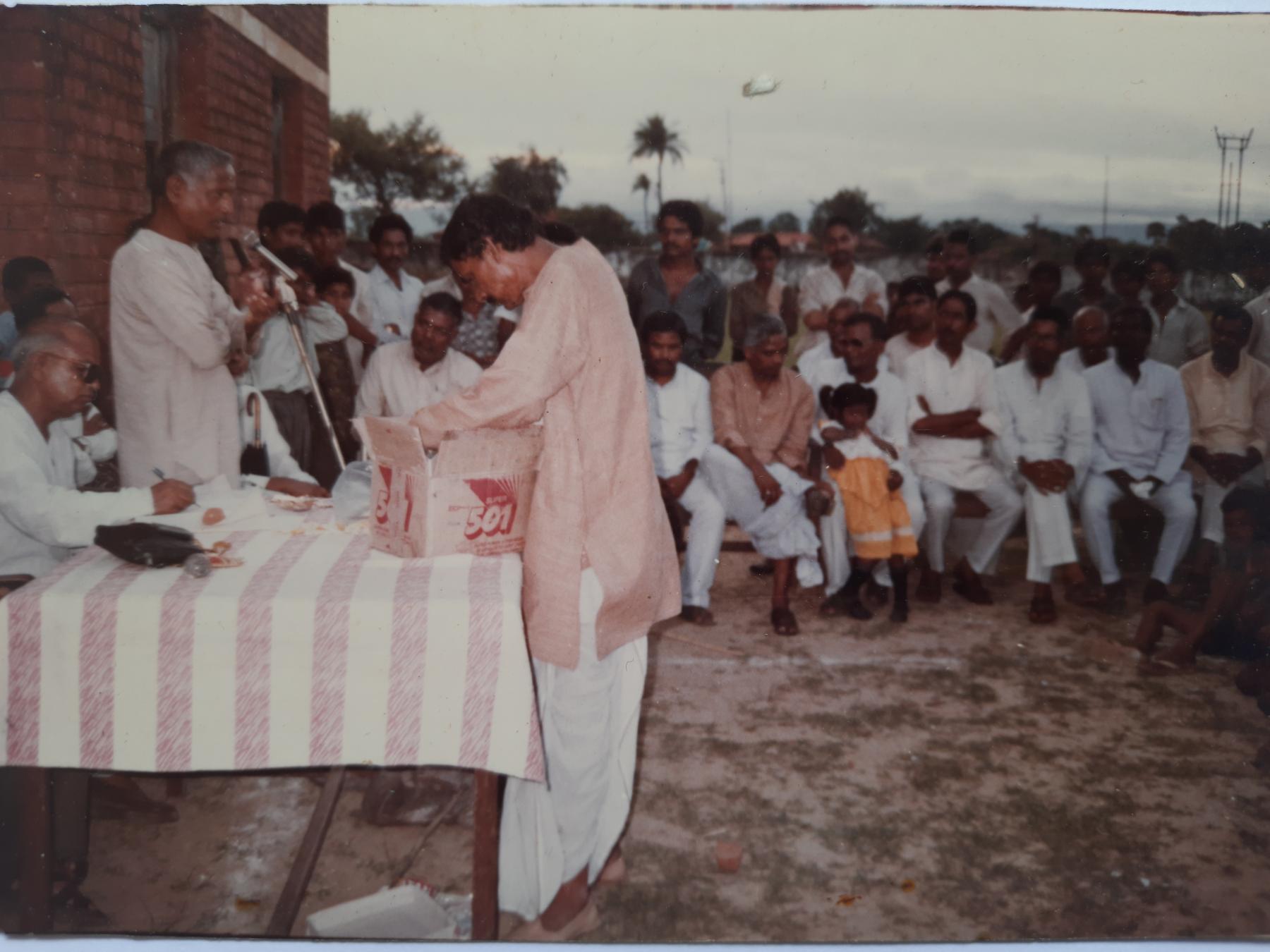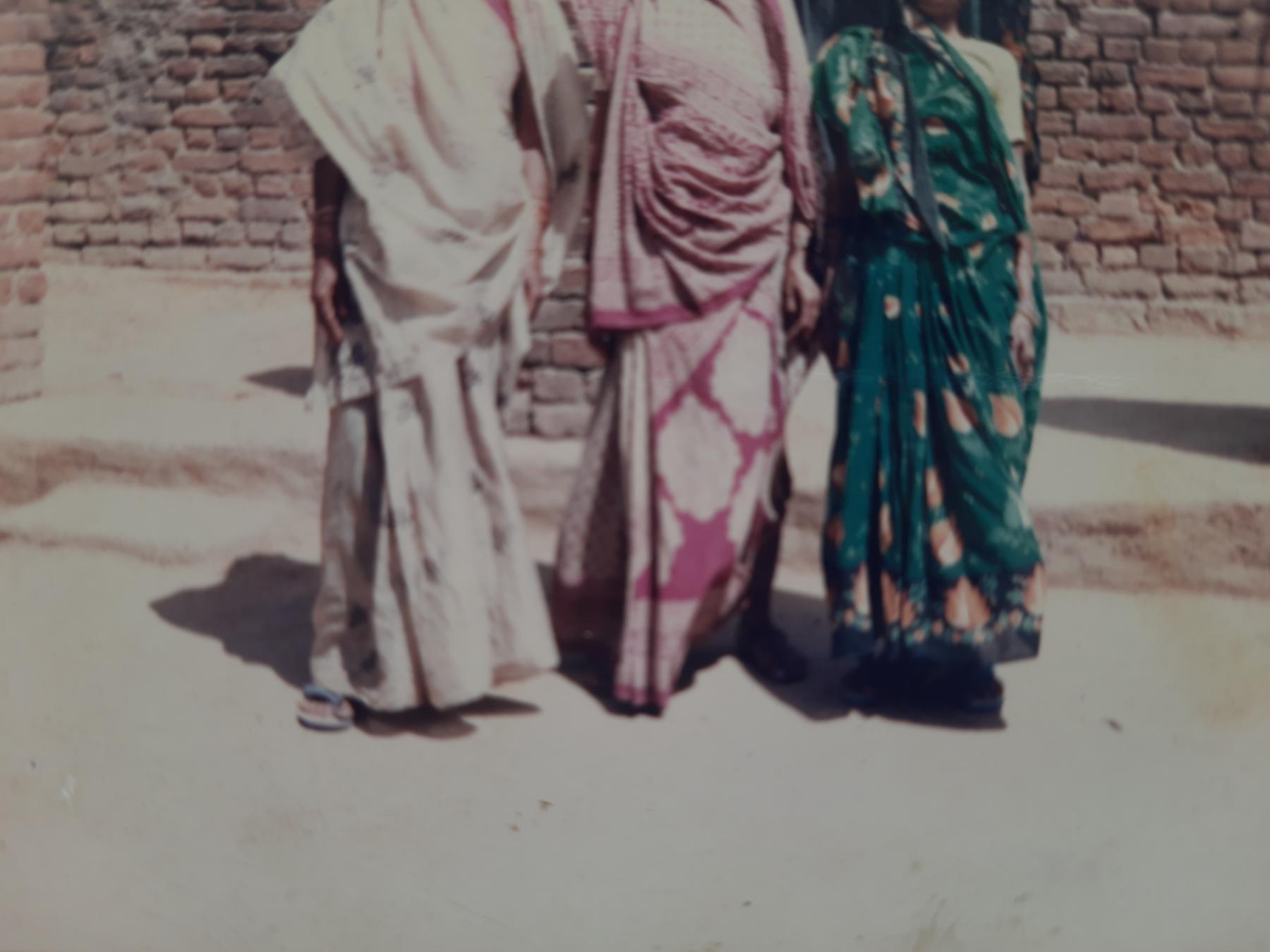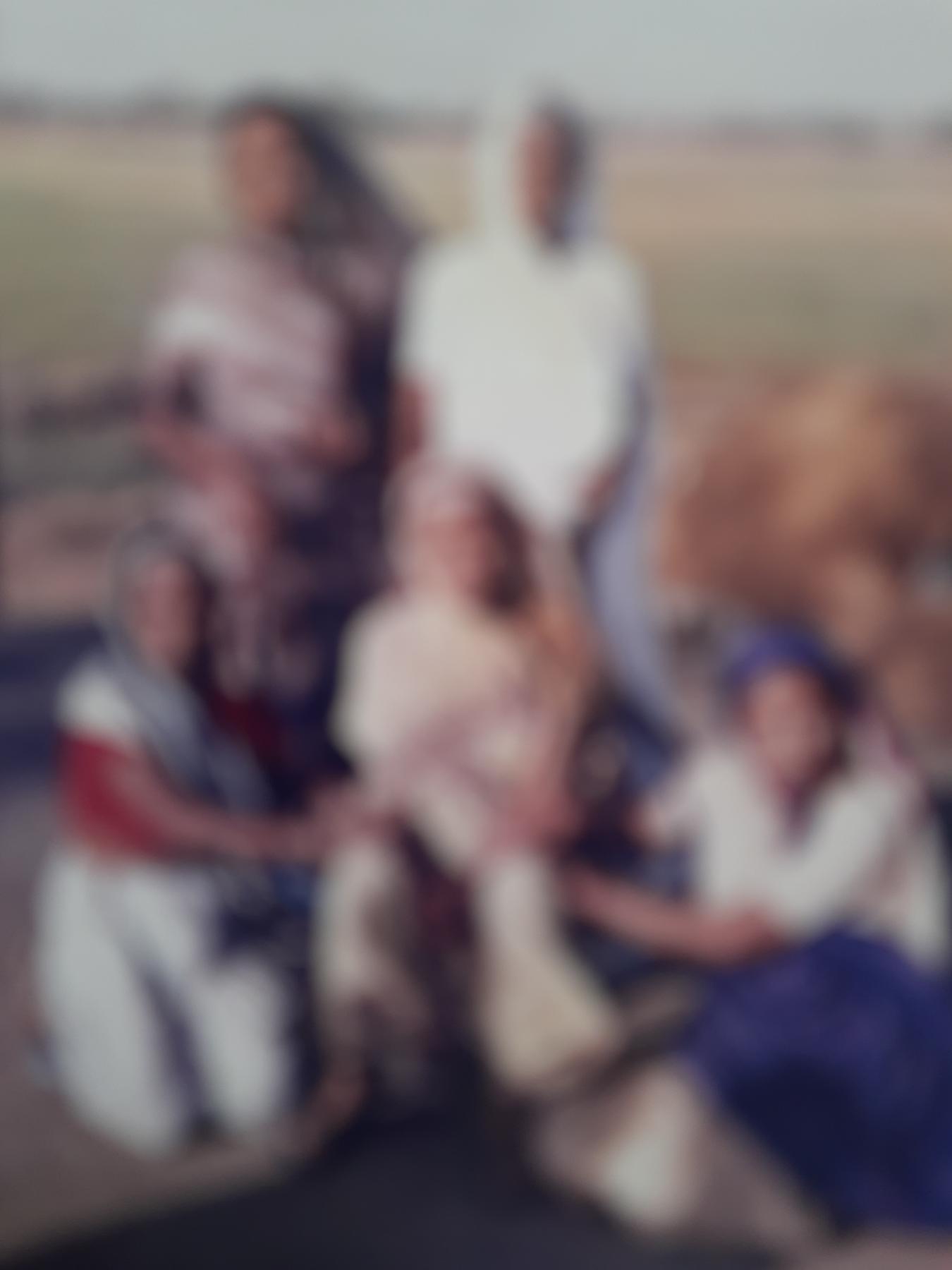A Drought Land Ageing Backwards

I
some say this is an ailing land
of water-borne demigods sent into exile
for forsaking their rectitude
a horde assembles –
a jaundiced blotch of stiff-necked
plebeians holding court
against ancestral felonies
their assemblage a dust bowl
upturned over a grief landfill
in the midday sun
this is not a gathering for prayers
and amendments
they have come to wait in silence
for a land to find back its benevolence
the waiting births a wariness that spreads
like mist over water
painting a portrait of a cataclysm –
in a plate is a mountain of rice
rice collapsing
in a sea of lentils
lentils devoid of salt
salt devoid
of its memory of the sea
life remains trapped in this Sisyphean loop
in servitude to the flesh that refuses
to thaw even when put inside
the acidic underbelly of hunger

II
There you were, bird-willed, in a world that
had forgotten its songs. The ghosts of abandoned
longings assert themselves on what is denied
a recognition. The mouth still welcomes the
unknown; is a derelict neighbourhood housing
fond remembrances of things past, a steady
deposition of cadence upon the tongue.
The body drifts, raw-throated, a watercourse
dredged of its visceral appetite of girlhood.
The memory of the sweetness of this
embryonic dreaming still holds onto
soft-hearted mumbles of promises you
only faintly remember now that your bones
are turning to relics. The continuation of
this lingering dream is what sends you to
sleep. Curious as you are, you still have to
learn the ways of mothering these aching limbs,
the unnamed branches of bygone times.
You fumble in the darkness of the immortal nature
of this zygotal catatonia. You have found a place
to store your dreams and timeless wisdoms.

III
They are like newcomers in this culm-jewelled
Land of phantasmal purveyors,
A truth long protected, a cluster of invisible
Stars stiffened behind curtains.
They don’t understand pilgrimage,
Nor the need to seek a god that stays
Somewhere faraway and measures the lands
Through another’s steps.
The prayers become a tally of accusations
Resting on the bend of the spine of
The horse that sleeps, unbending,
Limbs facing the direction the body cannot bend.
You think of humpbacks and the women
Who grow them –
Like dunes on a plateau teaching herds
Tricks to tread on without tripping
On their two restless feet.
This knowing comes in silence,
The hands that weave it into a garland of
Literariness to be passed on to their children
Still blind in the womb
Know that the place we sit atop is an
Unaccounted Faultline.
Who is to plough what hasn’t been mapped?
Who is to cleave the earth’s crust to excavate
The constitution of grief packed tightly
Within the land’s cemented skeleton?
Who is to bring down the close-mouthed
Sky with her milk ducts shrivelled and emptied?
Who is to seek shelter where the wind
Doesn’t lift the dust of yesterday’s frustrations?
Who is to answer the questions of the wise men,
The enquirers with foreseeing eyes
Looking for confirmations of a history
Hurriedly written –
“When did it last rain?”
“When the god was last awake.”
“When was the god last awake?”
“When he last lived.”
The last of the gods left behind an army
Of cocooned critters with heads larger than
The bulbous wombs of empty granaries –
A lesson for men who want to age immeasurably.
We pray so we can last, and
To last for long is to see existence
As a ceremony for death.
Author's Note: The string of poems have been written as a leitmotif for community gatherings in the rural settings. Palamu district, where the images are set in, falls in the rain-shadow area, and a fear of drought looms perennially over its residents. The accompanying poems are formulating portraits of meetings held with both conjoined and domiciliary purpose of conflict resolution, recreation, and discussion.
Image details: All images were taken between the years 1985 and 1995 in the Hussainabad subdivision of Palamu district of Jharkhand (then Bihar), and belong to the author's personal archive.
Pushpanjali is a native of Palamu district of Jharkhand, and is currently pursuing a Masters degree in English Literature. Her writing has appeared in More than Melanin, gulmohur quarterly, Narrow Road Journal, and elsewhere. Her work chiefly explores lasting impressions of her own rural Indian identity.




